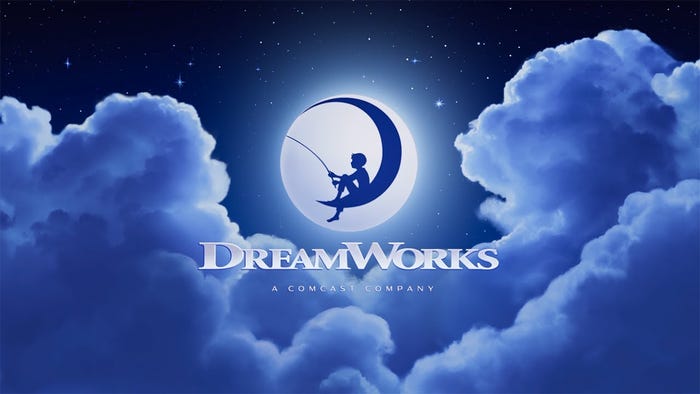
Featured Blog | This community-written post highlights the best of what the game industry has to offer. Read more like it on the Game Developer Blogs.
The Myth of Inherently Predatory Copyright Enforcement
App Piracy is easier to combat than ever, and the battle against it doesn't have to come at the expense of content-consumers. Developers can take action using the Digital Millennium Copyright Act (DMCA) notice, which has proven more effective than ever.


Whenever I'm feeling too enthusiastic about legal grunt work, talking to my developer and content-streaming friends about the multi-million-dollar, emotionally-taxing, and oftentimes ethically-confused intellectual property lawsuit of the week, I'm typically met with detached stares and perhaps an unruly remark about corporate blowhards and ambulance-chasers.
One comment stood out in my mind, though:
"With all this friggin' software piracy, you make it sound like protecting and monetizing any creative work requires a full-time legal team with a taste for blood. If any of us were to make something ourselves--an app, video, song, or whatever--we'd be completely out of luck."
WRONG!
Specifically, I wanted to respond that 1) he was grossly--well, mostly--underestimating the joys of the creative process, and that 2) protecting the fruit of one's disciplined loins in any practical sense doesn't require a great deal of time, financial resources, or mental effort. You just have to know a few of your rights and their associated tools. You also have to realize that, like in any sales scenario, we're dealing with a numbers game. We don't have to eliminate intellectual property theft, but mitigate it.
But sure, I should speak to the extraordinarily simple and typically quite pleasant experience of pirating mobile apps. As an unapologetic pirate, my download experience would go something like this:
In the case of Android, I would download the apk from a trusted torrent or file-sharing site, navigate the device’s file system, and boot it within a few minutes. With a jailbroken iPhone, it’s even easier--open a cracked app store, like AppCake or Installous, download the .ipa file, let the installer do its work and voilà! Free stuff! The process would feel nearly as easy as going through the intended channels, and to an increasingly technology-literate member of society such as myself, the extremely modest research required to accomplish either of these previously sketchy or prohibitively difficult feats effectively poses little-to-no barrier to enjoying the short-term fruits of app theft.
I’m not exaggerating for the sake of effect, either; app developers like Madfinger Games and Greenheart Games have reported 80 to over 90 percent of their downloads originating from unauthorized sources. DRM protections offered by Apple and Google present very feeble obstacles to cracking, and even content hidden behind in-app paywalls can be chipped away within a matter of hours. With these problems in mind, it’s no wonder that small and even large studios feel hesitant to publish material, perceiving widespread piracy of their properties as a foregone conclusion. Some developers, such as the creators of Anodyne, have commented positively on torrents bringing attention to their work, believing any admonishment against piracy would place a fat, black mark on consumer goodwill.
While I believe wholeheartedly that actively punishing illegal downloaders--the content consumers--IS NOT the correct and effective course of action, merely accepting rampant piracy as the inevitable result of the relatively nascent information economy is also fallacious, and offers a zero-sum worldview. This mindset forgets that non-free-to-play games--unlike movies, television or music--enjoy fewer streams of revenue. After all, concerts or screenings are irrelevant to financial success if the product (the game) itself doesn’t sell. Even more vexing, it ignores one of the many effective, easily-implemented, and non-disruptive legal tools at the disposal of game developers and content-creators in general.
That tool is the DMCA (Digital Millennium Copyright Act) Notice. Not the most novel solution, I know, but in light of recent news and developments I’d urge skeptical parties to reexamine its use in protecting their content.
I’ve utilized DMCA notices for enforcing against torrent and file-sharing links on behalf of the largest software distributors in the world. Although DMCA abuse has recently garnered some negative publicity to the procedure, if applied correctly and ethically this tool can appear almost MAGICALLY effective due to its “safe harbor” clause, limiting the liabilities of content hosting services (e.g. torrent and file-sharing sites) based in WIPO member countries SO LONG AS a formal procedure for the removal of illegal content is made available to copyright and trademark holders.
This is material that could be implemented in fewer than ten minutes, with content subsequently being removed within a mere few days. The flavor of the procedure is that of mutual cooperation, not coercion: the link is removed, the hosting site can deem itself compliant, and the uploader need not suffer repercussions beyond the removal of his/her file. While it’s true that a determined user could buckle down and persist in uploading the content in question, continued monitoring over a short period--diminishing the ease of accessibility to illegal downloaders--would push a very large portion of pirates to obtain content through legal channels, as several studies have demonstrated. The typically high content-engagement of pirates relative to strictly legal downloaders makes them a market well worth cajoling toward good behavior. Pirates by-and-large carry a value mindset, meaning that they’re well-inclined toward paying for content. Most of them tend to favor specific sites and resources, so if we were to plot their behavior along a curve of accessibility (ease of access) instead of availability (whether the content exists on any channel), the results would again imply that, should the process for illegal downloading be made just difficult enough, the vast majority of users would favor legal downloads.
Keep in mind that many of the top-10 most-popular torrent indexers have suffered sizeable lawsuits, and as such only one on said list--the formerly dominant “thepiratebay” and its many proxies--lacks a DMCA-compliant takedown procedure. Even in this one outstanding case, however, “ThePirateBay’s” user base no longer accounts for over 50% of torrent activity. That means that millions of instances of illegal activity can be curtailed significantly through a simple notice procedure, and content-producers need not slight fans with vampyric settlement notices.
I absolutely urge app developers, and small developers especially, to discard any misgivings about enforcing their rights. Barriers to timely and non-disruptive success are simply not that difficult to overcome, and certainly not to the degree that content creators should feel obligated to appeal to their fans’ good nature. Pirates are often VERY good-natured, but any help you can provide in making the ethical decision the easiest decision isn’t predatory, but benevolent. It reestablishes the concept of “value” in an economy where that trait has seemingly become uncommon.
That, I think, is the mindset we should all adopt.
Read more about:
Featured BlogsAbout the Author(s)
You May Also Like













